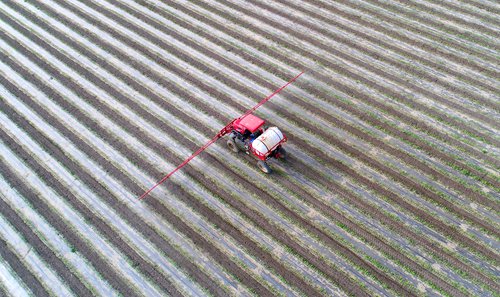HOME >> WORLD
Thailand to ban several widely used pesticides
Source:AFP Published: 2019/10/23 18:58:40

Photo: VCG
Thailand edged closer Tuesday to banning glyphosate and two other controversial pesticides despite protests from farmers in a multi-billion-dollar agriculture industry aiming to be the "kitchen of the world."
It is also one of the biggest consumers of pesticides, which are being banned or phased out in other parts of the globe because of links to a variety of illnesses.
Thailand's National Hazardous Substances Committee voted to ban glyphosate and chemicals paraquat and chlorpyrifos, officials said.
"The ban will be effective on December 1," committee chair Panuwat Triangjulsri, of the Ministry of Industry, told reporters.
Paraquat, a herbicide which the US Centers for Disease Control calls "highly poisonous," has been banned in Europe since 2007.
Studies have linked the pesticide chlorpyrifos to developmental delays in children, while critics say the weedkiller glyphosate is a likely cause of cancer.
Farming organizations and the chemical industry have lobbied for the continued use of glyphosate, sold under the trade name Roundup made by Bayer subsidiary Monsanto.
In the US there are more than 13,000 lawsuits with plaintiffs claiming glyphosate caused different kinds of cancer even though it is widely used in agriculture there.
The company has suffered several defeats in court that it plans to appeal against.
Thailand's Pesticide Alert Network, an advocate for the ban, thanked the government but said it needs to help farmers adjust to other methods.
Posted in: ASIA-PACIFIC